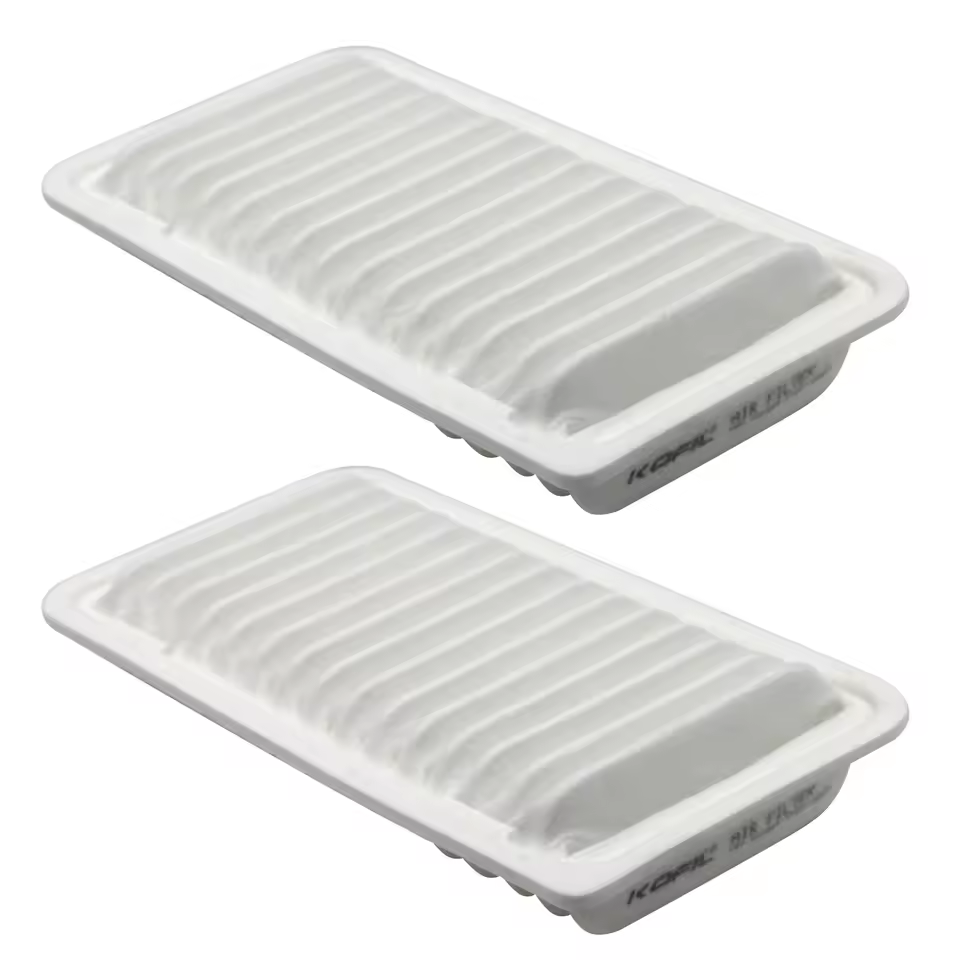Introduction: The Dual Role of Car Air Filters
Car air filters are essential components of vehicle maintenance, performing two critical yet often overlooked functions: protecting your engine and safeguarding your health. These unsung heroes work silently but play a pivotal role in both mechanical performance and cabin comfort.
1. Engine Protection
The engine air filter prevents dust, debris, and contaminants from entering the combustion chamber. A clogged or worn filter restricts airflow, forcing the engine to work harder—reducing fuel efficiency, causing rough idling, and accelerating wear on pistons and valves. For example, off-road vehicles or those driven in dusty areas need frequent replacements to avoid costly engine repairs.
2. Cabin Air Quality
The cabin air filter (often HEPA-grade) acts as a barrier against pollutants: pollen, mold spores, and even pathogens. In urban environments, it traps particulate matter from exhaust fumes, while activated carbon layers neutralize odors. Neglecting this filter can recirculate allergens, exacerbate respiratory issues, and leave your car smelling musty.
The Hidden Costs of Neglect
Ignoring car air filters leads to a vicious cycle:
- Performance Loss: Reduced airflow lowers horsepower and fuel economy.
- Health Risks: Stale cabin air increases allergy symptoms or sinus irritation.
- Costly Repairs: Unfiltered debris can damage sensors or gaskets, costing thousands to fix.
Why Regular Maintenance Matters
Modern cars rely on precise airflow for optimal performance. Replacing car air filters every 12–18 months (or per manufacturer guidelines) ensures smoother engine operation, cleaner air, and extended vehicle lifespan. It’s a small investment with big returns—keeping both your car and your lungs running smoothly.
Understanding Engine Air Filters: Performance and Longevity
The engine car air filter is a simple yet vital component that directly impacts your vehicle’s performance and lifespan. Its primary role is to trap dust, dirt, and debris before they enter the engine, ensuring clean airflow for combustion.
How It Works
Constructed from paper, cotton-gauze, or synthetic materials, the filter balances filtration efficiency and airflow. A clean filter allows optimal oxygen intake, supporting combustion efficiency and horsepower. Over time, trapped particles clog the filter, restricting airflow and forcing the engine to “inhale” unfiltered air through gaps—a process called “filter bypass” that damages internal components.
Signs of a Clogged Filter
- Reduced acceleration or “hesitation” during acceleration.
- Dark exhaust smoke (from incomplete combustion).
- Check engine light triggered by lean air-fuel ratios.
Maintenance Tips for Longevity
- Replacement Cycle: Every 15,000–30,000 miles (sooner in dusty areas).
- Check Monthly: Inspect for visible damage, such as tears or excessive dirt buildup.
- Choose the Right Type:
- Paper filters: Affordable but disposable.
- Cotton-gauze: Reusable (with cleaning) but pricier.
The Cost of Neglect
A clogged filter reduces fuel efficiency by up to 10% and increases wear on pistons and valves. Regular replacements ensure smooth performance and prevent costly repairs. Prioritize this maintenance to protect your engine’s longevity.
Cabin Air Filters: Your Defense Against Polluted Air
The cabin car air filter acts as a shield against pollutants, ensuring the air inside your vehicle is safe to breathe. Designed to trap allergens, pathogens, and odors, it plays a critical role in modern automotive health and comfort.
How It Works
Most cabin filters use multi-layer technology:
- HEPA-Like Layers: Capture 95% of particles as small as 0.3 microns (e.g., pollen, mold spores).
- Activated Carbon: Neutralizes VOCs, smoke, and pet odors through adsorption.
- Pre-Filter Mesh: Stops large debris like leaves from clogging finer layers.
What It Protects You From
- Allergens: Reduces exposure to pollen and dust mites by up to 90%.
- VOCs: Filters out chemicals from road asphalt and industrial emissions.
- Pathogens: HEPA-grade filters block bacteria and some virus-carrying droplets.
Signs of a Clogged Filter
- Stale or musty odors lingering in the cabin.
- Reduced airflow from vents despite full fan speed.
- Allergy symptoms worsening during car rides.
Maintenance Tips
- Replacement Cycle: Every 12–18 months or after driving in smoky/contaminated areas.
- Check Annually: Inspect for visible dirt buildup or physical damage.
- Upgrade Options: Opt for HEPA+carbon filters in high-pollution zones.
The Health Impact
A clean cabin filter improves respiratory health for allergy sufferers and reduces fatigue from inhaling polluted air. It’s a small investment with big returns—breathing easier behind the wheel starts with proper maintenance.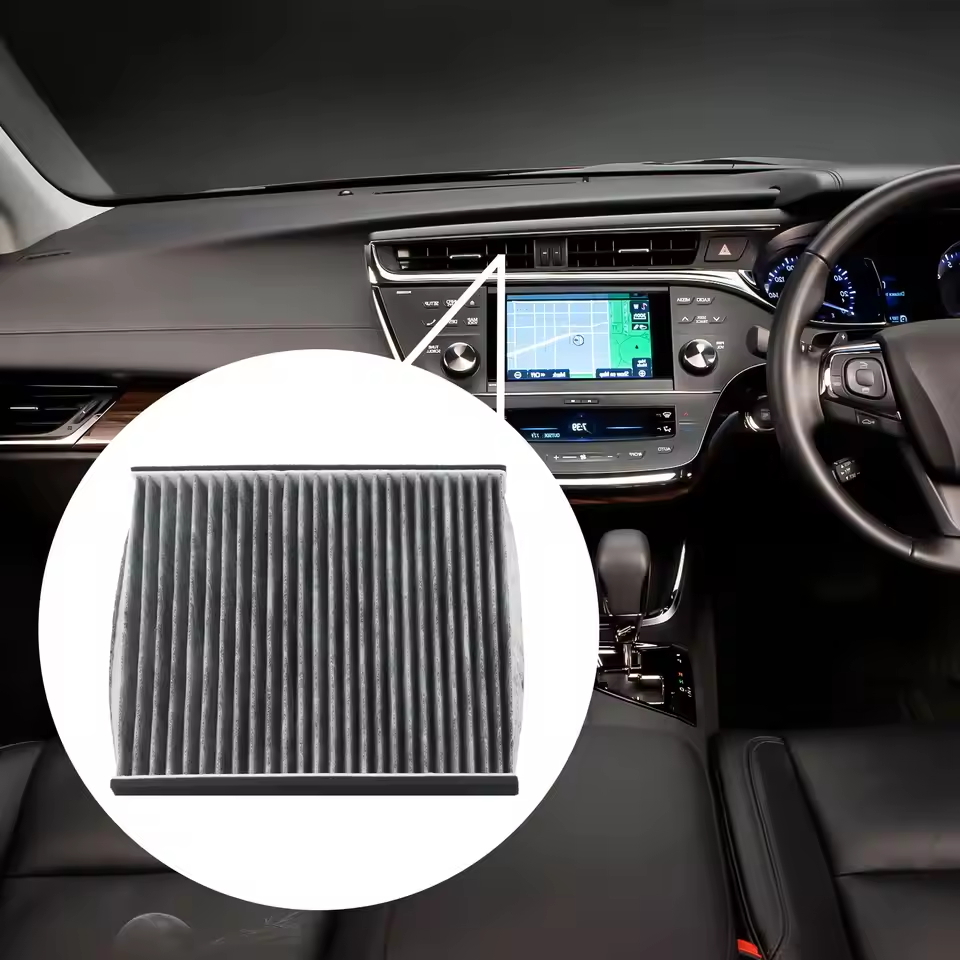
Choosing the Best Car Air Filters: Performance vs. Cost
Selecting the right car air filters involves balancing performance needs with budget constraints. Here’s how to choose wisely for both engine protection and cabin air quality:
Engine Air Filters: Performance vs. Cost
- Paper Filters:
- Cost: 10–20.
- Performance: Basic filtration; disposable after 15,000 miles. Ideal for low-mileage drivers.
- Cotton-Gauze (Reusable):
- Cost: 30–60 (with cleaning kits).
- Performance: Higher airflow for off-road vehicles; requires periodic cleaning. Brands like K&N excel here.
- Synthetic Filters:
- Cost: 20–40.
- Performance: Durable for dusty environments; lasts longer than paper.
Cabin Air Filters: Health vs. Budget
- Standard Filters:
- Cost: 15–30.
- Performance: Traps pollen and dust; lacks odor control.
- HEPA+Carbon Filters:
- Cost: 40–80.
- Performance: Removes 99% of allergens and neutralizes smoke. Top picks: Bosch or 3M.
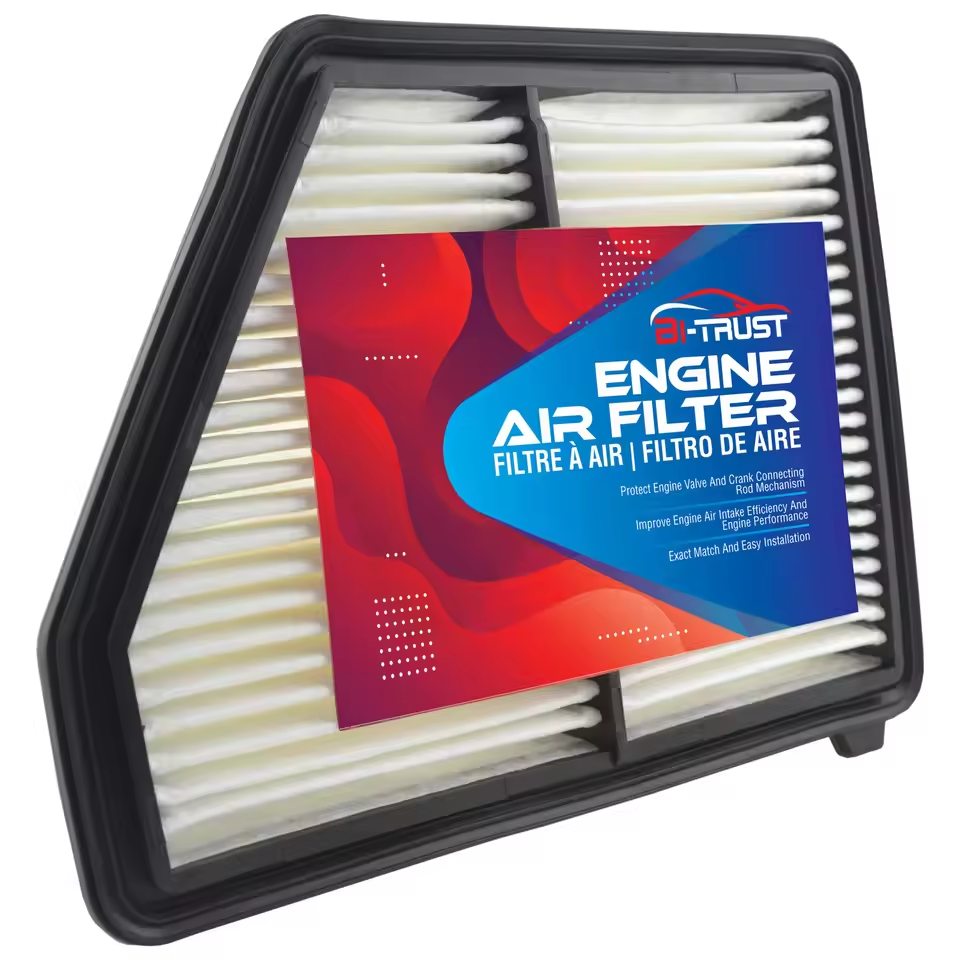
Maintenance Tips to Maximize Filter Lifespan
Regular maintenance of car air filters ensures they work efficiently and last longer. Follow these steps to extend their lifespan and protect your vehicle’s performance:
Engine Air Filter Maintenance
- Monthly Visual Checks:
- Open the filter housing (refer to your manual).
- Look for visible dirt, tears, or oil residue.
- Cleaning Reusable Filters:
- Cotton-Gauze: Use a soft brush to remove debris; soak in warm, soapy water (avoid harsh chemicals). Rinse and let air-dry fully.
- Synthetic: Wipe with a dry cloth—do not submerge.
- Storage: Keep reusable filters in airtight bags to prevent pre-contamination.
Cabin Air Filter Care
- Replacement Cycle: Every 12–18 months or when airflow weakens.
- Preventive Checks:
- After wildfires or pollen season, inspect for excessive buildup.
- Replace immediately if you detect mold or mildew odors.
- Avoid DIY Cleaning: Most cabin filters are disposable; cleaning can damage delicate layers.
Common Mistakes to Avoid
- Ignoring Clogged Filters: Continuing to drive with a blocked filter accelerates engine wear.
- Using Incorrect Filters: Installing the wrong size or type can reduce airflow efficiency.
- Skipping Manufacturer Guidelines: Overlooking recommended replacement intervals voids warranties in some cases.
Tools for Effective Maintenance
- Soft Bristle Brush: For cleaning debris without damaging filter material.
- Compressed Air Spray: Blows out dust from hard-to-reach areas (use outdoors to avoid inhaling particles).
The Payoff of Regular Care
Proper maintenance saves money by preventing costly engine repairs and improving fuel efficiency. A well-maintained car air filter also ensures your cabin stays allergen-free and odors are minimized. Prioritize these steps to keep your vehicle—and your health—in top condition.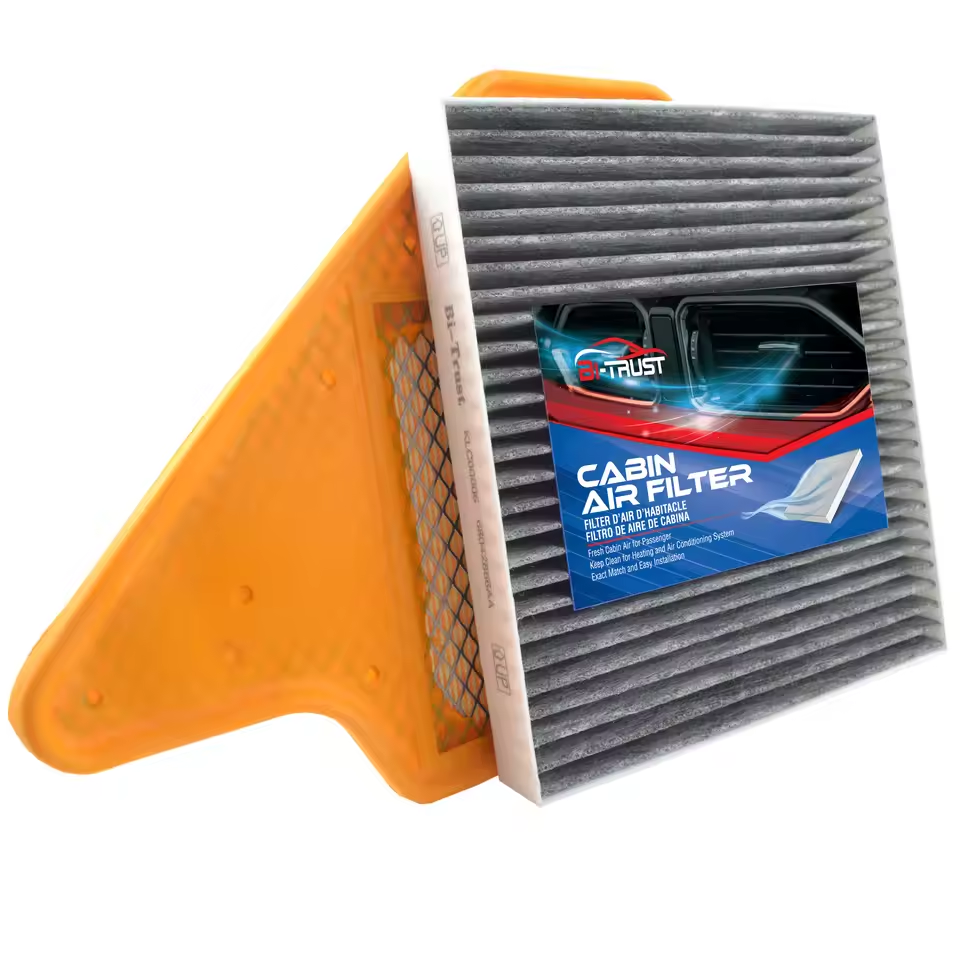
Common Myths About Car Air Filters Debunked
- Misconceptions about car air filters can lead to poor maintenance choices. Here’s the truth behind three common myths:
1: “Reusable Filters Always Save Money”
Fact: While cotton-gauze filters like K&N are reusable, their long-term cost may exceed disposable options. Cleaning requires time, soap, and care—improper maintenance can reduce airflow efficiency.
2: “Cabin Filters Only Matter for Allergy Sufferers”
Fact: All drivers benefit. Cabin filters improve HVAC efficiency by reducing strain on the system and trapping pathogens, extending AC/heat lifespan in every vehicle.
3: “A Clogged Filter Doesn’t Affect Fuel Economy”
Fact: Restricted airflow forces the engine to burn more fuel. Studies show clogged filters can reduce mileage by 5–10%, costing hundreds annually in wasted gas.
4: “HEPA Filters Harm Engine Performance”
Fact: Engine filters balance filtration and airflow; HEPA-like cabin filters don’t affect performance—they only target pollutants in the passenger area.
5: “Filters Last Forever If Kept Clean”
Fact: Even clean filters degrade over time. Materials like paper weaken with age, and cabin filters absorb VOCs until they’re saturated—replacement is inevitable.
DIY Guide: Replacing Car Air Filters Yourself
Replacing car air filters is a simple DIY task that saves time and money. Follow these steps to do it safely and effectively:
Tools Needed
- New filter (match your vehicle’s make/model).
- Screwdriver (flathead or Phillips).
- Soft cloth for cleaning the housing.
Engine Air Filter Replacement
- Locate the Filter:
- The engine filter is in a black rectangular box under the hood, usually on the driver’s side.
- Open the Housing:
- Remove clips or unscrew the lid. Lift out the old filter.
- Install the New Filter:
- Align the new filter with airflow arrows. Close the housing securely.
Cabin Air Filter Replacement
- Access the Filter:
- Found under the dashboard (near the glovebox) or in the engine bay (varies by model).
- Remove Old Filter:
- Open panels, slide out the old filter, and note its orientation.
- Insert New Filter:
- Ensure it matches the airflow direction. Reassemble panels tightly.
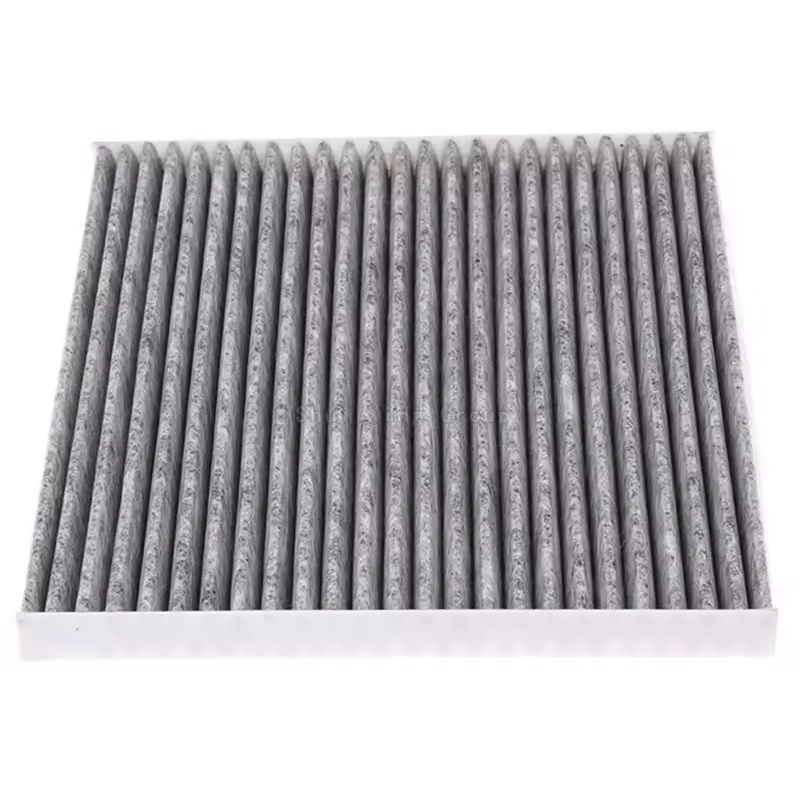
- Ensure it matches the airflow direction. Reassemble panels tightly.
The Hidden Costs of Ignoring Car Air Filter Maintenance
Neglecting car air filter maintenance leads to unexpected expenses that far outweigh the cost of timely replacements. Here’s how ignoring it impacts your wallet:
1. Engine Damage Costs
A clogged engine filter forces unfiltered air through gaps, allowing debris to enter the combustion chamber. This can:
- Damage pistons and valves (800–2,000 to repair).
- Worsen spark plug efficiency, requiring replacements (100–300).
2. Fuel Waste Adds Up
Restricted airflow creates a “starved” engine that burns more fuel to compensate. Over a year, this can cost an extra 200–500 in gasoline.
3. Health-Related Expenses
A dirty cabin filter recirculates allergens and pollutants, potentially:
- Triggering asthma attacks (medical costs: 500–1,000 per incident).
- Causing sinus infections requiring antibiotics or doctor visits.
4. Sensor and Diagnostic Fees
Clogged filters can throw off oxygen sensors, triggering the “check engine” light. Diagnostic scans (50–100) and sensor replacements (200–600) add up quickly.
5. Reduced Resale Value
Neglected car air filters may lower a vehicle’s perceived maintenance quality, potentially reducing resale value by 5–10%.
The ROI of Maintenance
Replacing filters every 12–18 months costs 30–100 annually—a small price compared to engine repairs or health bills. Prioritize this task to avoid hidden costs and keep your car running smoothly.
